PAMIS Digital Passports
Supporting Inclusive Communication
PAMIS Digital Passports started life in the 1990s as the Personal Communication Passport project. Family carers worked with PAMIS to develop paper communication booklets, called passports which allowed people with profound and multiple learning disabilities to tell their own story, giving unique insight into their lives, experiences, needs and character, all of which helped to build positive interaction and truly person led communication.
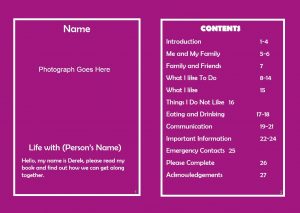
PAMIS family carers felt a natural progression of the paper passport was to develop it into a digital document which, uniquely, belonged to the individual and amplified their voice within their community. The importance of this cannot be overstated- the digital communications passports allowed people with PMLD to lead in their own care with the support of the people around them, teaching people how to communicate with them, letting them know about their lives, their interests, and their achievements, and bringing a digital approach to a group of people who were largely excluded from technology.
This developmental work culminated in the Manage IT research project which allowed PAMIS family carers, facilitated by PAMIS to continue to explore the role of technology in supporting complex communication and care.
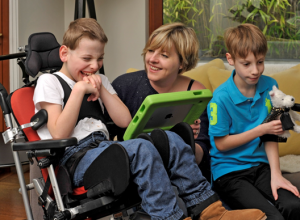
The passports, in their current form are the result of over 20 years of development and co-production with people who have profound learning disabilities, family carers and other supporters. They are being used across the UK and beyond in a wide variety of settings by anyone who needs support to communicate their needs to those around them- not only people who have profound learning disabilities! The most important aspect of the passport is it’s relevance and easy to use structure, it’s unique ownership, and the lead taken by people with profound and multiple learning disabilities and their family carers in its development.
Pamis have been approached on many occasions by people wanting to develop the passport in different ways either by using apps, software or digital platforms. While we have explored these options, we, and our families, have decided to maintain the passport as a document owned by the individual rather one that belongs to a service, company or organisation. There are a few reasons for this. Using the passport in its current form means that the passport is congruent with information governance in most areas; it is unusual for the passport to encounter problems as it uses commonly available software which is compatible across many areas. The passport can also be used with freely available software, which makes it less digitally exclusive, and it is not-for-profit, and so accessible to greater numbers of people. Most importantly, it belongs to the individual, does not collect peripheral data on the person for 3rd parties, and is completely under their control. We are aware that this makes the concept of the passport, and those who developed it vulnerable to exploitation- the passport is hugely relevant to many groups of people, and it’s a good idea! This has partly informed our decision to make it freely available to everyone who feels that they might need a passport. We do ask that any changes are made in collaboration with PAMIS and our families- it’s important that we don’t stray too far away from the document that is familiar to the people that developed it, their families, their carers, and the practitioners that support them. Our families frequently find themselves in situations within acute care where recognition of the navigation page, and knowledge of where to find lifesaving information is essential. We ask you to please maintain the navigation page if you are developing a passport.
What is the passport?
The PAMIS passport is a simple, easy to use, flick-through e-book that can be created and displayed on tablet devices, computers and phones. Each PAMIS passport contains information about one person and uses video, photography, sound and text to help that person express their needs. The passport, uniquely, is owned by the individual and is shared with those they choose to share it with. The initiation and development of the passport might come from family carers, paid carers, practitioners, and individuals themselves. The development process has often been used as a way of building a truly person led approach with people who need extra support. The passports are freely available to anyone who needs them.
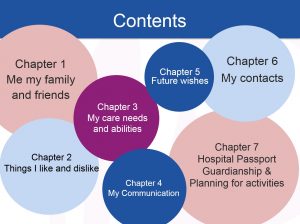
We strongly encourage anyone who is intending to develop a passport for someone else to first develop one for themselves- or have someone develop one for them. This allows much greater insight and reflection into the type of information, experiences, media and tone to use within the passport. It’s also incredibly good fun!
Examples of the type of information that people have shared using their passport include;
- How to communicate and have a conversation about subjects that interest the person
- How to meet someone’s sensory needs
- Taking people’s own voices into account during care planning
- Important information on supporting the person’s physical inclusion
- Maintaining the person’s friendships, interests and culture
- Ensuring that the person can maintain and share their social contacts, family stories and memories
- Holding and sharing anticipatory and other care plans
- Detailing medical care procedures if the person chooses to share this information
- Supporting assessment tools, outcomes and recommendations
- Support, care and kindness after a bereavement
- Direct links into playlists so the person is listening to the music they enjoy
- Videos, pictures, playlists and sounds
A few examples of how they are being used include….
- Translating how individuals express themselves to less familiar carers
- Helping individuals interact with their peer group and those around them
- Establishing a communication pathway – for example, between school and home
- Empowering families with a tool they can use for training carers
- Supporting people to understand the voice of the person and how they express their needs
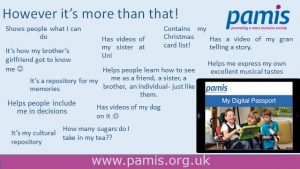
The Digital Passport is so much more than you think it is…..
If you are interested in developing a free digital passport for yourself, or the person you support, please contact Catriona Jamieson [email protected]
Let our families tell you about the impact of thePAMIS Digital Passport
On behalf of our families, PAMIS are extremely proud to have won the 2020 Health and Social Care Alliance (The Alliance) Self Management Digital Innovator Award which is given in partnership with Discover Digital for our work on PAMIS Digital Passports. You can read about this here.
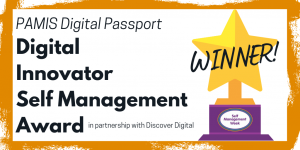
PAMIS’ work on the PAMIS Digital Passport contributed to PAMIS winning the 2016 GSK Impact Award. 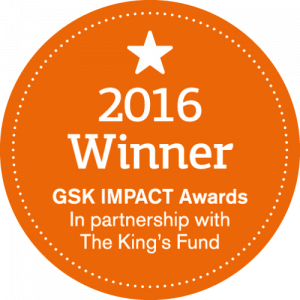
The Development of the PAMIS Digital Passport has been supported by The Scottish Government 
and the Health and Social Care Alliance Scotland 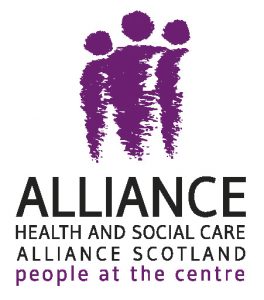
PAMIS assert their right to the intellectual and design copyright of the Digital Passport. (Reasserted 23rd February 2022)